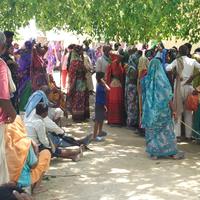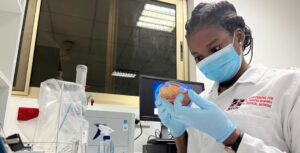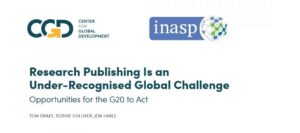
Wives of migrant workers at higher risk of HIV in Nepal
Travelling abroad to work or study has become a national trend in Nepal, especially in the young male population. Over three million Nepali migrant workers are in the Middle East, Malaysia and India. Particularly in India and in Malaysia, migrant workers are involved in risky sexual practices which may have health consequences to their wives as well.
A recent study published in SAARC Journal of Tuberculosis, Lung Diseases & HIV/AIDS shows that wives of migrant workers in Nepal are at a higher risk of HIV, not because they are not aware of it but because they are scared to ask their husbands about their potentially risky sexual behaviour while abroad. The article is freely available online on the NepJOL platform, which is supported by INASP.
“Two-thirds of the research participants had generally good knowledge of HIV and its mode of transmission, but half of them could not ask their husbands about their potentially unsafe sexual practices while abroad,” says Nirmal Aryal, one of the authors of the article and currently a PhD Scholar at the Department of Medicine, University of Otago, Wellington, New Zealand. This study was carried out by the University of Aberdeen, UK.
The research involved interviewing 182 women in two rural villages of Nepal to identify the level of knowledge and attitude of female spouses of Nepali migrant workers on HIV and sexually transmitted infections (STIs) and their understanding on migration-related risky sexual behaviours of their husbands while abroad.
Dr Pramod Regmi, co-author on this article and based at Bournemouth University (UK) summarizes the study’s findings as, “knowledge alone would not be sufficient to fight against the spread of HIV/STI among wives of migrant workers.”
Along with raising awareness for safer sexual practices, “it is incredibly important to give attention towards ‘cultural barriers’ to negotiate safer sex as well such as uneven power relationships in sexual relationships between husband and wife, and a dearth of awareness on sexual roles and rights of women,” adds Aryal.
The article Knowing is Not Enough: Migrant Workers’ Spouses Vulnerability to HIV written by Aryal N, Regmi PR, van Teijlingen E, Dhungel D, Ghale G , Bhatta GK appears in SAARC Journal of Tuberculosis, Lung Diseases & HIV/AIDS 2016; XIII(1), page: 9-15. It is available online on NepJOL platform made available by INASP.
About the Journal
The SAARC Journal of Tuberculosis, Lung Diseases and HIV/AIDS is the official journal of SAARC Tuberculosis and HIV/AIDS Centre (STAC). The journal’s main aim is the continuing education of personnel and the dissemination of the most up-to-date information in the field of tuberculosis, lung diseases and HIV/AIDS. It is devoted to dissemination of knowledge concerning various aspects of tuberculosis, lung diseases and HIV/AIDS.
About NepJOL
NepJOL hosts over 115 journals published from Nepal, covering the full range of academic disciplines. The objective of NepJOL is to give greater visibility to participating journals and to the research they convey. NepJOL was initiated in June 2006 and officially launched in September 2007. It is a project supported by INASP and locally managed by Tribhuvan University Central Library. It aims to promote the awareness and use of Nepal-published journals in all disciplines by providing access to tables of contents (TOCs), abstracts and full text on the Internet.
About INASP
Founded in 1992, INASP is an international development organization working with a global network of partners in Africa, Latin America and Asia. In line with the vision of research and knowledge at the heart of development, INASP works to support individuals and institutions to produce, share and use research and knowledge, which can transform lives.
INASP’s approaches are based on the core pillars of capacity development, convening, influencing and working in partnership. INASP promotes equity by actively addressing the needs of both men and women across all our work and addressing issues of power within the research and knowledge system. INASP has projects in 28 countries, supporting all aspects of research and knowledge systems, from facilitating the provision of information to researchers to helping parliamentarians and civil servants to use research and evidence in policy making.
Disclaimer: Research published in journals hosted on the NepJOL platform is selected by the journals in accordance with their own editorial processes and criteria. INASP and TUCL provide hosting and guidance on good practices but are not involved in selection of research.
For further information
Thakur Amgai, Communications Consultant, INASP
Email: tamgai@inasp.info
Dr Sangita Shrestha, Communications Officer, INASP
Email: sshrestha@inasp.info

 Next Post
Next Post


